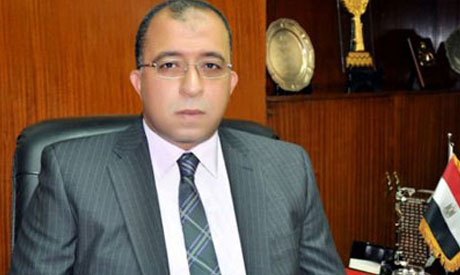
Ashraf El-Araby, Egypt’s minister of planning (Photo: Al-Ahram)
The Egyptian economy grew by 2.2 percent in the fourth quarter of the 2012/13 fiscal year which ended on 30 June, Minister of Planning Ashraf El-Araby has said.
Average growth for the entire 2012/13 fiscal year will be around 2.3 percent, El-Araby told Ahram Online at a meeting with April 6 Youth Movement on Tuesday.
Official growth figures for the quarter and the fiscal year are yet to be released.
El-Araby was not optimistic about growth prospects for the first quarter of the current 2013/14 fiscal year, which began in July.
“It is normal to have slow growth in the first three months of every fiscal year,” El-Araby said. “But in this fiscal year (2013/14) we will see poorer growth due to a variety of incidents that might have had negative impacts.”
The Islamic fasting month of Ramadan, a new government, the dispersal of Islamist sit-ins in Cairo and Giza after the military ousted president Mohamed Morsi amid nationwide protesters against his rule, then the imposition of a state of emergency and a curfew, are all taking their toll on the country’s growth, El-Araby added.
El-Araby said the state plan for 2013/14 includes total investments worth LE290 billion (roughly $42 billion), of which LE120 billion (roughly $17.4 billion) is from public sources, with the rest coming from the private sector.
“The value of public investments might turn out to be LE142.3 billion (roughly $20.6 billion) if we add the recently announced stimulus package worth LE22.3 billion ($3.2 billion) to them,” the minister added.
According to El-Araby, if Arab Gulf states do not help Egypt carry out the stimulus plan, the government should resort to the public treasury.
In August, Egypt's cabinet approved an additional LE22.3 billion ($3.2 billion) in spending on investment projects to boost the economy over the coming 10 months.
Deputy Prime Minister Ziad Bahaaeddin said the government would present its economic programme to Gulf Arab countries, in particular the United Arab Emirates, which has already agreed to finance medical projects and the building of ten wheat silos.
Short link: